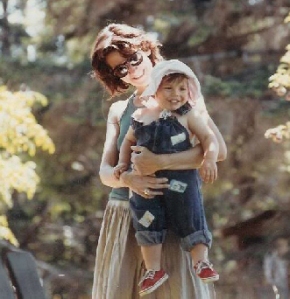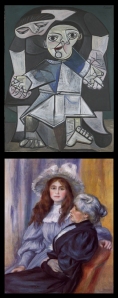(originally posted May 5, 2010)
A few weeks ago, on the first real day of Spring, we co-hosted a baby shower in the  Barndiva gardens for good friends of ours. I was busy shooting in the kitchen for most of it, but every now and then I gazed out the window to enjoy the laughter rising from the long table we'd set beneath the still bare mulberry trees. Four other women at the party ~ all from Healdsburg ~ were pregnant as well. We are experiencing a veritable baby boom here in our little town. At the end of the afternoon the expectant mother gave everyone small beeswax candles that we were told to light when she went into labor. It was a thoughtful gift from a beautiful young woman about to become a new mother.
Barndiva gardens for good friends of ours. I was busy shooting in the kitchen for most of it, but every now and then I gazed out the window to enjoy the laughter rising from the long table we'd set beneath the still bare mulberry trees. Four other women at the party ~ all from Healdsburg ~ were pregnant as well. We are experiencing a veritable baby boom here in our little town. At the end of the afternoon the expectant mother gave everyone small beeswax candles that we were told to light when she went into labor. It was a thoughtful gift from a beautiful young woman about to become a new mother.
Seeing the candle on the counter a few days later, however, triggered a complex of emotions. I'd just come from a meeting with Chef about our Mother's Day menu, which is probably why I paused to consider the rapid progression my thoughts took when I looked at the candle. In the span of a few seconds I managed to move from 'all warm and fuzzy' ~ envisioning a magic circle of friends all spread out across town in our candlelit rooms, by virtue of our collective energy becoming a force field of positivity unto ourselves, to 'self involved' ~ what if no one called to tell me she'd gone into labor, I'd be left out of the magic circle, to 'worried' ~ what if her labor was a long one and the candle didn't last through the birth?
Sanguine to controlling to fearful ~ this is my MO when it comes to motherhood in general. Since the day after my first child was born and the miracle of oxytocin had not worn off, until yesterday, when I spoke to youngest, in college 6,000 miles away, I go through the same personal zeitgeist: from happiness (to hear their voices) to suspicion (what do they want/need) to dread (are they ok? Is something wrong? What's happened?). I usually get back to happiness when they aren't around ~ thankfully love is my default setting with all three of them ~ but honest to God, nothing has ever screwed with my head like being a mother.
 Fascinating subject, motherlove. And skewed quite differently depending upon whether we look at it from the viewpoint of the child, or the mother. I’ve been both and find the second half of the equation ~ being a parent ~ infinitely more fraught, if only because of the power it conveys which you are obligated to administer during their formative years. Being a parent is an early Bob Dylan song that you want to make wonderful sense out of, but ultimately mystifies you. Perhaps because I have the feeling I’ll never get it right, or that there is no right, or that what’s right one minute is capable of being turned on its head the next. And what’s really interesting (bordering on unsettling) is the fact that while we all seem to approach parenting with our own unique set of skills and expectations, at the end of the day there is a startling verisimilitude to motherhood, a DNA set of emotions that is able to transverse both culture and history. It seems to be rooted in the unlimited potential for nirvana or disaster our children’s very existence brings to bear ~ which always lies just beneath the surface.
Fascinating subject, motherlove. And skewed quite differently depending upon whether we look at it from the viewpoint of the child, or the mother. I’ve been both and find the second half of the equation ~ being a parent ~ infinitely more fraught, if only because of the power it conveys which you are obligated to administer during their formative years. Being a parent is an early Bob Dylan song that you want to make wonderful sense out of, but ultimately mystifies you. Perhaps because I have the feeling I’ll never get it right, or that there is no right, or that what’s right one minute is capable of being turned on its head the next. And what’s really interesting (bordering on unsettling) is the fact that while we all seem to approach parenting with our own unique set of skills and expectations, at the end of the day there is a startling verisimilitude to motherhood, a DNA set of emotions that is able to transverse both culture and history. It seems to be rooted in the unlimited potential for nirvana or disaster our children’s very existence brings to bear ~ which always lies just beneath the surface.
The first time I saw Berthe Morisot and Her Daughter Julie Manet, I related to the transitional use of color ~ the steely gray of the mother’s hair seemed to pour into the daughter’s dress, turning it a luminescent blue ~ a life affirming color. Looking at the same painting now, I can clearly see what I missed: the figure of the mother has had the life sucked out of her! The innocence of the daughters direct gaze does not negate her rising dominance over the smaller older woman, whose stare is in stasis, the heavy folds of her dress rooting her to the foreground, pulling her downward. And what’s with the colorless hand that looks like a cadaver’s? How had I missed that before? Perhaps because I was not yet a mother when I first viewed the painting.
Thankfully, my own experience does not jive with Morisot’s (in this work.) While there have been plenty of times I felt the rigors of parenting sucking the air out of the room, my children have more often than not been the only thing which kept me going long after I wanted to quit. Not because of their belief in me ~ I’m one of the lucky ones who thankfully did have a mother to do that ~ but, quite simply, because they make me laugh. We share the same sense of humor. When we are all together and the stars align we are capable of creating that rarest of human communities: a family that speaks the same language, shares the same values (most of which came from previous generations), trades in goodwill, and draws its strength from a deep well of loyalty. It's not always easy to get there however. Sometimes the stupidest things can derail our best intentions. While some families seen to get there by just hanging out, I suspect most of us have to work really hard at it.
 When I was at ULCA as an undergraduate I took a seminar with the great L.A. Times book critic Robert Kirsch. Walking to class one day we got to talking about family and he dropped into the conversation, quite casually, that while he had more than one child, he really only liked one of them. How can you not like your kids, I asked, shocked to the core. You have to love them, he replied, there’s nothing written you have to like them. And, he added, if you make that a condition of your love, you saddle them with not being free to find out who they really are, without the judgment of whom you expect them to be constantly hanging over them. They are their own people, or should be, he concluded, and at the end of the day that’s what you need them to be. His use of the word ‘need’ instead of ‘want’ wasn’t intended to be pejorative, but empowering. Kirsch was very careful with language. I took note.
When I was at ULCA as an undergraduate I took a seminar with the great L.A. Times book critic Robert Kirsch. Walking to class one day we got to talking about family and he dropped into the conversation, quite casually, that while he had more than one child, he really only liked one of them. How can you not like your kids, I asked, shocked to the core. You have to love them, he replied, there’s nothing written you have to like them. And, he added, if you make that a condition of your love, you saddle them with not being free to find out who they really are, without the judgment of whom you expect them to be constantly hanging over them. They are their own people, or should be, he concluded, and at the end of the day that’s what you need them to be. His use of the word ‘need’ instead of ‘want’ wasn’t intended to be pejorative, but empowering. Kirsch was very careful with language. I took note.
A lot has been said about the commercialization of Mothers Day that I agree with, but in the end I think it’s a wonderful opportunity that should not be lost, a chance to say thank you to someone who gave you life and, by hook or by crook, whether for a moment or a lifetime, had a hand in keeping you alive. Whether you actually say I love you or just pass the ketchup doesn’t matter. So long as you don’t use the time to settle old grudges or try and change the family dynamic, there is joy to be found in the quiet moments of time just spent together, especially if you listen to them echo. There is truth~ if not god~ to be found in the details, because details are what ultimately define us. Not the grand gesture, but a touch, a conversation, a knowing look. And hey, in case you need it said out loud, this holds true even if your mother is physically gone now, like mine. That’s the beauty of this profound connection. I spoke to my mum just this morning. Good thing, too. She told me not to get too heavy on the Freud.
There is a wonderful poem by Shamus Heaney that ends
So while the parish priest at her beside Went hammer and tongs at the prayers for the dying, And some were responding and some were crying, I remembered her head bent towards my head, Her breath in mine, our fluent dipping knives Never closer the whole rest of our lives


